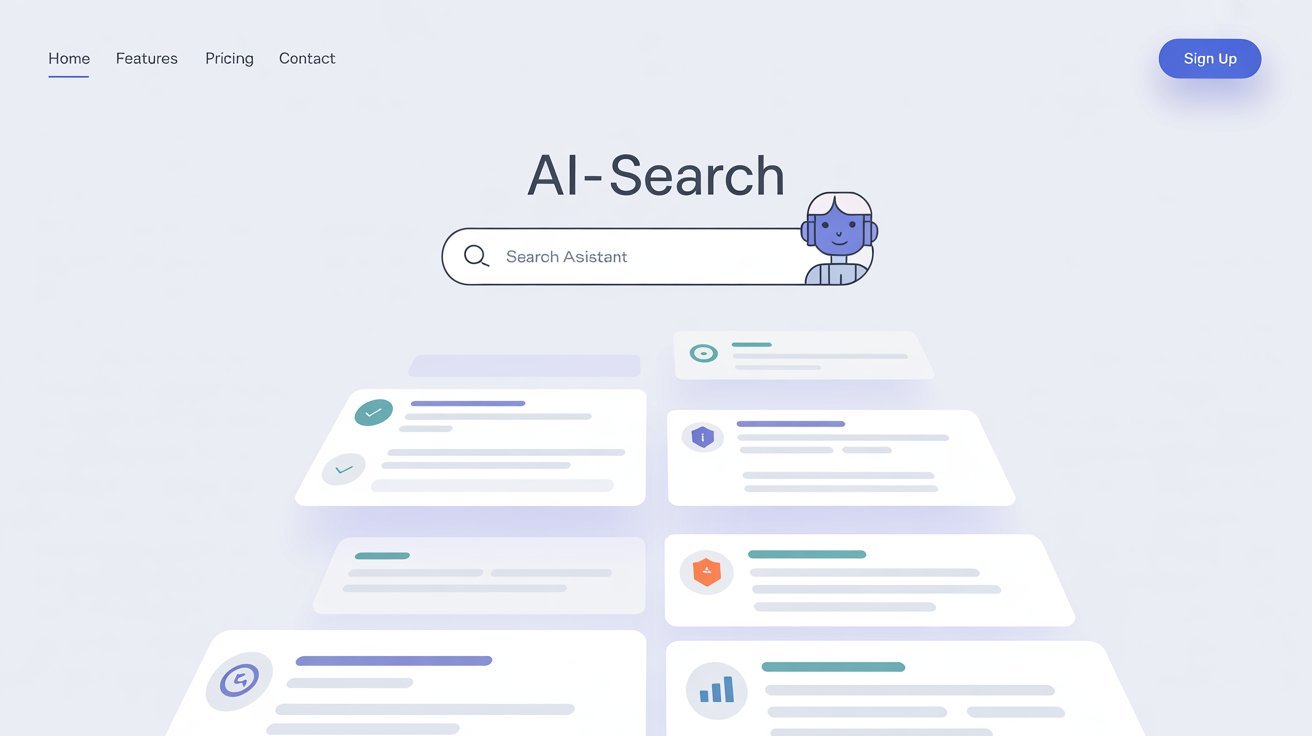
AI assistants and answer engines are reshaping how people discover information. Instead of browsing ten links, readers now see concise, conversational answers that pull from a few trusted sources. AI search optimization is the art of making your content the kind that gets cited in those answers—while still delighting real humans.
At RevoluteX Digital, we help brands become the source assistants trust. Our team maps your topics, polishes your content, and aligns your site structure so your pages are easy to understand, quote, and recommend—without turning your blog into a technical project. If you want practical momentum, not theory, we’ve got you.
What “AI Search Optimization” Really Means?
It’s a simple shift in mindset: write so that people can skim, and assistants can clearly recognize what your page is about, extract the key point, and credit you. That means:
- Clear, specific answers near the top
- Scannable structure (headings, bullets, short paragraphs)
- Evidence and recency (sources, dates, author expertise)
- Consistent coverage of related topics (so you look complete, not one-off)
The Core Principles You Must Keep in Mind
Answer First
Open with a direct, 40–60 word answer to the main question. Use the same words your audience uses.
Be Easy to Quote
Use short sections, bulleted lists, step-by-steps, key takeaways, and a tiny TL;DR. These formats are highly “quotable.”
Show Credibility
Add the author’s name and expertise, link to reliable sources, include “published” and “updated” dates, and cite data where you can.
Think about Topics, not just Keywords
Create a pillar page and a handful of supporting articles that explore related sub-questions. Link them together with descriptive anchor text.
Stay Fresh
Review top pages quarterly. Update stats, screenshots, and examples; note what changed and when.
Polish the Experience
Fast load times, mobile-first design, readable fonts, descriptive image alt text, and clean URLs make both people and assistants happier.
Step-by-Step: Your AISO (AI Search Optimization) Action Plan
Step 1: Capture Intent
List the 10–15 real questions your audience asks (how-to, cost, timelines, comparisons, pitfalls). Prioritize by business value and search demand.
Step 2: Build a Simple Topic Cluster
- One pillar page that covers the whole topic.
- 5–8 supporting pages that go deep on key sub-topics (how-to, checklist, vs. pages, case studies).
- Link them together using natural, descriptive text.
Step 3: Structure for Skimming
- Clear H2/H3s that mirror questions.
- A short answer box near the top.
- Key takeaways as bullets.
- A short “How to do it” section with numbered steps.
- A brief FAQ for common edge cases.
Step 4: Strengthen Trust Signals
- Put a real name on the article with a short bio.
- Add sources next to claims (and include the date of the source).
- Show last updated date.
- Add a small “What changed” note when you refresh.
Step 5: Connect the Dots
- Internally link related pages, tools, and case studies.
- Use consistent terminology across pages so your topic footprint looks coherent.
“For a deeper dive into content strategy, check out our digital marketing services.”
Step 6: Maintain and Measure
- Refresh quarterly or when facts change.
- Track: page engagement, assisted conversions, and whether your brand appears in answer-style results for your target queries.
A Simple Content Template (No Fluff, No Code)
- H1: Phrase it as the user would ask it.
- Quick Answer (2–3 sentences): Direct, specific, current.
- Key Takeaways (3–5 bullets): What readers should remember.
- How to Do It: Short, numbered steps.
- Proof or Examples: Brief notes or mini-cases with source links.
- Pitfalls & FAQs: Short, practical answers to common worries.
- Author & Updated: Who wrote it, and when it was last reviewed.
Avoid These Common Mistakes
- Leading with fluff instead of the answer.
- Walls of text with no headings, bullets, or clear sections.
- Outdated stats, missing dates, or anonymous authors.
- Writing one isolated post with no related content to support it.
- Over-stuffing keywords instead of using natural, consistent language.
Quick Checklist
- The main question is answered within the first 100 words
- Headings reflect real questions people ask
- Short paragraphs, bullets, and numbered steps
- Credible sources and publication/updated dates
- Author name + short bio
- Internal links to related guides and case studies
- Quarterly refresh plan with a “what changed” note
- Mobile-friendly, fast, and accessible
Why RevoluteX Digital?
RevoluteX Digital turns AI search optimization into a repeatable, human-friendly workflow. We audit your current content, build a practical topic map, upgrade structure and trust signals, and guide your team with templates that make writing faster and outcomes clearer. Two to three sprints are usually enough to see meaningful gains in visibility and citations across answer-style results.
Ready to be the source assistants trust—and readers recommend?
Book an AISO content audit with RevoluteX Digital and let’s turn your expertise into highly quotable, high-performing content.
Jason
We are an Affordable Digital Marketing Agency in Shawnee with budget-friendly solutions to amplify your brand. Elevate your business without compromising quality or cost.
